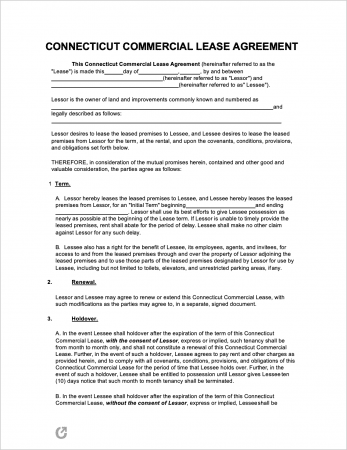
The Connecticut Lease Agreements are legal documents used for setting binding terms regarding the renting of a property. They are formed between a landlord and a tenant, who are both bound by the conditions included in the form. Once they record their signatures onto the document they are bound by the rules until the lease’s expiration (or until one party breaches the agreement). While each contract may vary according to the wishes of each party, contracts usually contain elements such as a description of the property, utilities, the term of the lease, and rent amount.

Commercial Lease Agreement – To be exclusively used for the renting of buildings, offices, warehouses, and rooms to business tenants.
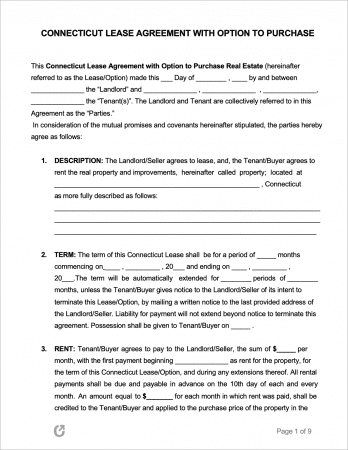
Lease to Own Agreement – An agreement that serves as both a lease and a purchase agreement. At the end of the lease, the tenants have the option (not the obligation) to purchase the rental.
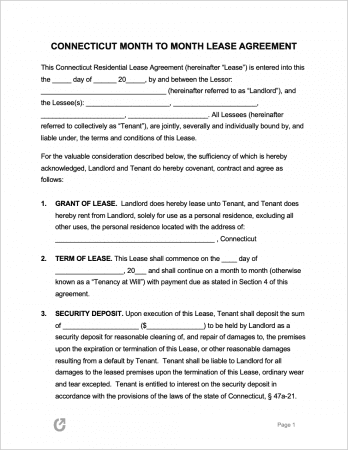
Month-to-Month Lease Agreement – An auto-renewing, short-term lease designed to provide flexibility to both landlords and tenants. Can be terminated with thirty (30) days of notice.
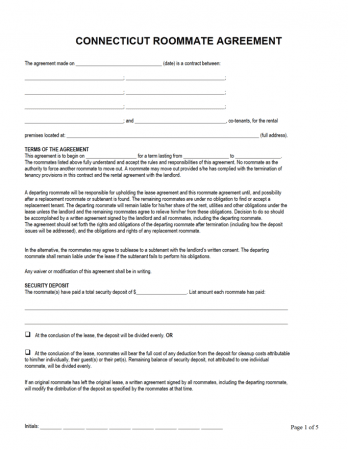
Roommate Agreement – Used for specifying the responsibilities of each roommate in a shared residence.
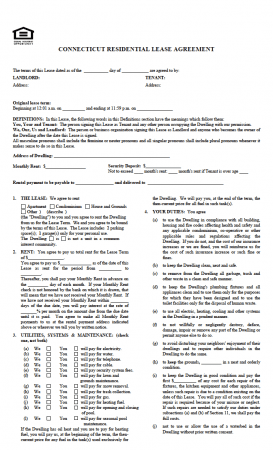
Standard Residential Lease Agreement – The most commonly used lease contract. Includes the rights and responsibilities of landlords and tenants.
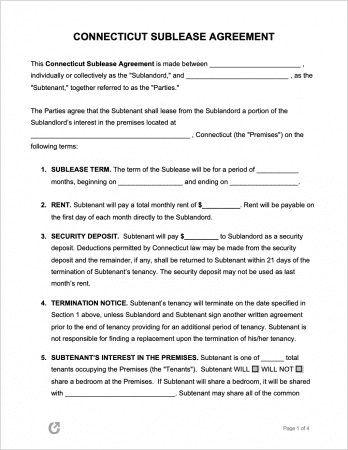
Sublease Agreement – A document signed between the original tenant of a leased property and a new tenant, for purpose of allowing the original tenant to vacate the rental.
A Connecticut Lease Agreement is a legal document that is used to set legal protections for both the landlord renting out a property and the tenant(s) living or working in the rental. To aid the process of finding an upstanding tenant, it is advisable that landlords use a rental application to vet tenants.
Landlord-Tenant Guides / Handbooks
In accordance with § 830-47a-3a, unless otherwise agreed, rent must be paid in equal monthly installments at the beginning of each month. For terms of one (1) month or less, rent is payable at the beginning of the term. There is a grace period of nine (9) days for fixed-term leases and four (4) days for one-week tenancies.
Maximum (§ 830-47a-21): For tenants aged sixty-two (62) years and older, a landlord may only be demand a maximum one (1) month’s rent. For tenants under sixty-two (62) years of age, a landlord may only demand two (2) months’ periodic rent, of which may be in addition to the current month’s rent.
Returning to Tenant (§ 830-47a-21): Tenants must receive their deposit back, including any accrued interest, within thirty (30) days of handing the premises back to the landlord or within fifteen (15) days of receiving the tenant’s forwarding address, whichever is later.
Deposit Interest (§ 830-47a-21(i)): Landlords are required by law to pay out interest in deposits in accordance with the rate set by the Federal Reserve Board Bulletin. Current CT rates can be found at the official state website. For 2020, the rate required to be paid by landlords is .15% . If the tenant is late on making a payment by ten (10) days or more, they lose their right to the interest (unless the landlord charges a late fee).
Uses of the Deposit (§ 830-47a-21): There are three (3) types of expenses landlords can deduct from security deposits for. These are: